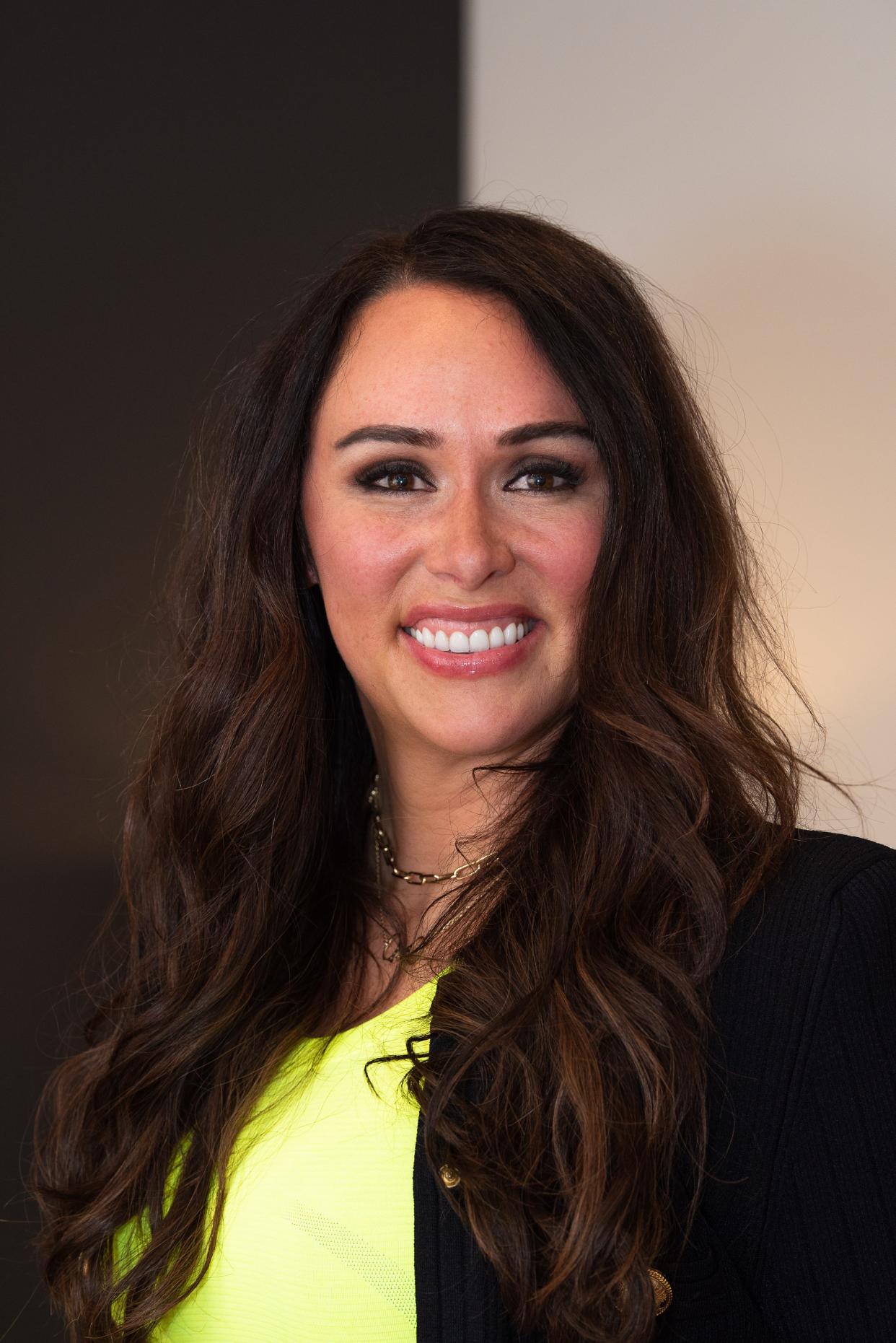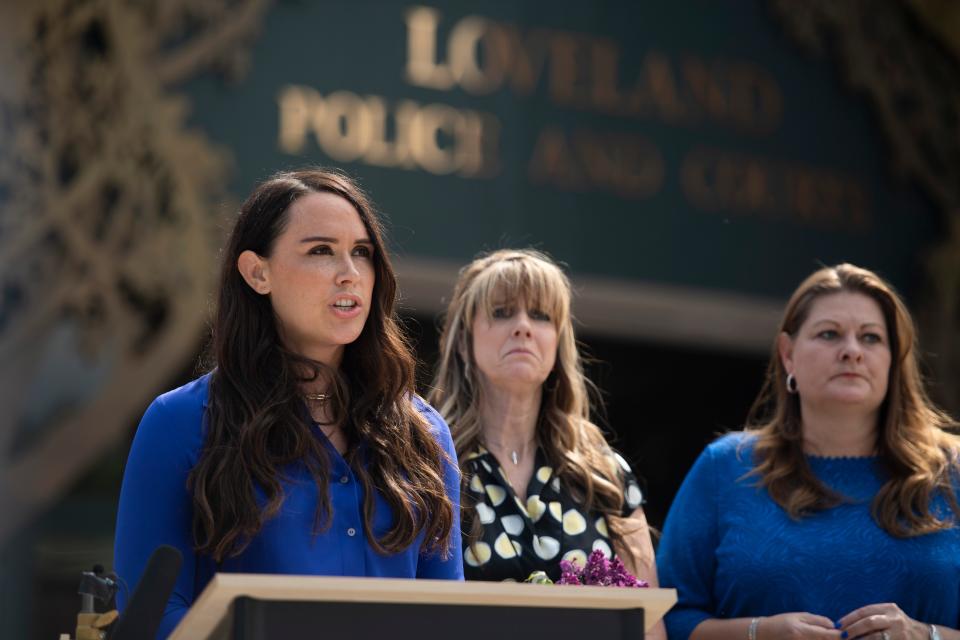How this Colorado lawyer is paving her own way in civil rights law

Sarah Schielke is one of USA TODAY’s Women of the Year, a recognition of women who have made a significant impact in their communities and across the country. The program launched in 2022 as a continuation of Women of the Century, which commemorated the 100th anniversary of women gaining the right to vote. Meet this year’s honorees at womenoftheyear.usatoday.com.
Sarah Schielke’s legal career began on Craigslist in 2010.
After graduating from Boston University School of Law in 2008, "a series of bad life decisions in my 20s" brought Schielke to Colorado for a fresh start.
With no work experience or legal connections, she decided to post an ad on Craigslist for discount legal services, offering legal assistance for free or close to it, “so long as you understand I’m learning and I’m doing my best," she said.
“I can’t believe how many people look for lawyers on Craigslist because I got a ton of experience very quickly," Schielke said.
In 2012, Schielke opened the Life and Liberty Law Office, specializing in criminal defense and civil rights litigation − the areas of law she's been passionate about since law school.
“From there it was a lot of learning,” Schielke said. “My whole life has really been a steep learning curve, and I just love it.”
Never working under another attorney has allowed her to pave her own way in law, particularly when it comes to civil rights cases. Schielke's unique strategy of sharing body camera footage from her client's cases with the public to draw more attention has been successful in recent years, getting her clients substantially more money than Schielke said similar cases typically settle for, and her success has continued in 2022.
Schielke's release of the body camera footage in the arrest of Karen Garner − a woman with dementia who was injured by a Loveland police officer during a June 2020 arrest − in April 2021 brought the case to light for the first time, bringing national media attention and prompting the city to conduct internal and external reviews of the incident and the department as a whole throughout 2021 and into 2022.
The investigations into this case, prompted by Schielke's release of the footage, led to two officers facing criminal charges. In 2022, both officers charged were sentenced: Austin Hopp to five years in prison and Daria Jalali to 45 days in jail followed by three years of probation.
Loveland settled with the Garner family for $3 million in September 2021. The "going rate" for settlements in a case like Garner's is usually less than $100,000, Schielke said.
In 2022, Schielke settled another case against a Colorado law enforcement agency − this one filed against the Idaho Springs Department − for a record-breaking $7 million "for (the officers') roles in the brutal tasing attack they perpetuated on (her client), in his own home" in 2021, according to a news release from Schielke.
For her civil rights work, Schielke is USA TODAY's Women of the Year honoree for Colorado.
This conversation has been edited for length and clarity.

How have you paved your own way?
Everybody's path is different, but there has to be some degree of adaptability to strong women who are getting to where I'm at, or where other women have gotten to, that men don't have to do.
What's tricky is figuring out how to get to adapt yourself without losing yourself, and then trying to change it from within, which is one of the things I want to do. I have two staff and ... they're smart, strong women.
What is your proudest moment?
I had a client in Clear Creek (County, Colorado) tased by police in May 2021, and he said I had to release the body camera footage because it would vindicate him.
I had to fight, and I finally got the judge to follow the law and release it to me, but I was told I couldn't release the video publicly without blurring certain faces. I followed the judge's order to the letter, but I still felt like they were going to try and hold me in contempt.
When I released the body camera footage, the judge called an emergency hearing the same day and issued me a citation to hold me in contempt.
And I have never felt so proud in my life because I knew it was probably going to happen, but I knew they were wrong, and I knew I was doing what was right.
I have that citation (which was later dismissed) framed at home, and I got a T-shirt made that I wore to the next court appearance that said my 'First Amendment rights were violated in Clear Creek County and all I got was this lousy T-shirt.'
(The department settled her client's case for $7 million in November.)

Is there a low moment in your life that helped shape you?
My dad passed away from cancer at 59, right when I started practicing law. Before he died, he got to see me do one trial. It was my first one ever, which I lost.
But his passing and processing the loss of a parent, it made me reframe my life. One of the very first things that I kind of took out of it was a lot of gratitude, positivity and forgiveness for everybody, including myself.
I think if my dad was still around and I hadn't experienced that kind of amount of suffering and grief, I'd be very different today.
What is your definition of courage?
The brand of courage that I try to live by and teach to my kids is to try and execute, to have the determination to fix a wrong that you see, or make things better, even if people are telling you "no," or especially if the people who are telling you "no" have a lot of power and are scary.
Courage is trusting yourself, loving other people no matter what, and trying to leave the world a little better than you found it.
Is there a guiding principle or mantra you tell yourself?
I think, fundamentally, there are two types of people: There are good people, and there are good people in pain.
Everyone wakes up and thinks "I'm going to try my best today," whatever they think their best is. But mostly everybody's trying their best. And if they're acting in a way we find outrageous or repugnant, it's because they're suffering in their own way.
How do you overcome adversity?
Constant learning. I read everything I can find about a situation. I reach out to people who I think have more experience and ask them.
I also couldn't do this without my husband, who is a stay-at-home dad for our two daughters.
What advice would you give your younger self?
My younger self is unrecognizable to who I am now, and it was only through a lot of loss and suffering and not wanting to have those things hurt so much that I worked so hard on myself and how I interact with the world and deal with the world.
Keep loving to learn − you're going to do a lot of it.
2022 Women of the Year: Meet Jane DeDecker, the Colorado sculptor behind the national women’s suffrage monument
Women of the Century: Hattie McDaniel, Madeleine Albright, Molly Brown on Colorado list of influential women
This article originally appeared on Fort Collins Coloradoan: How a Colorado attorney is making a difference in civil rights law

